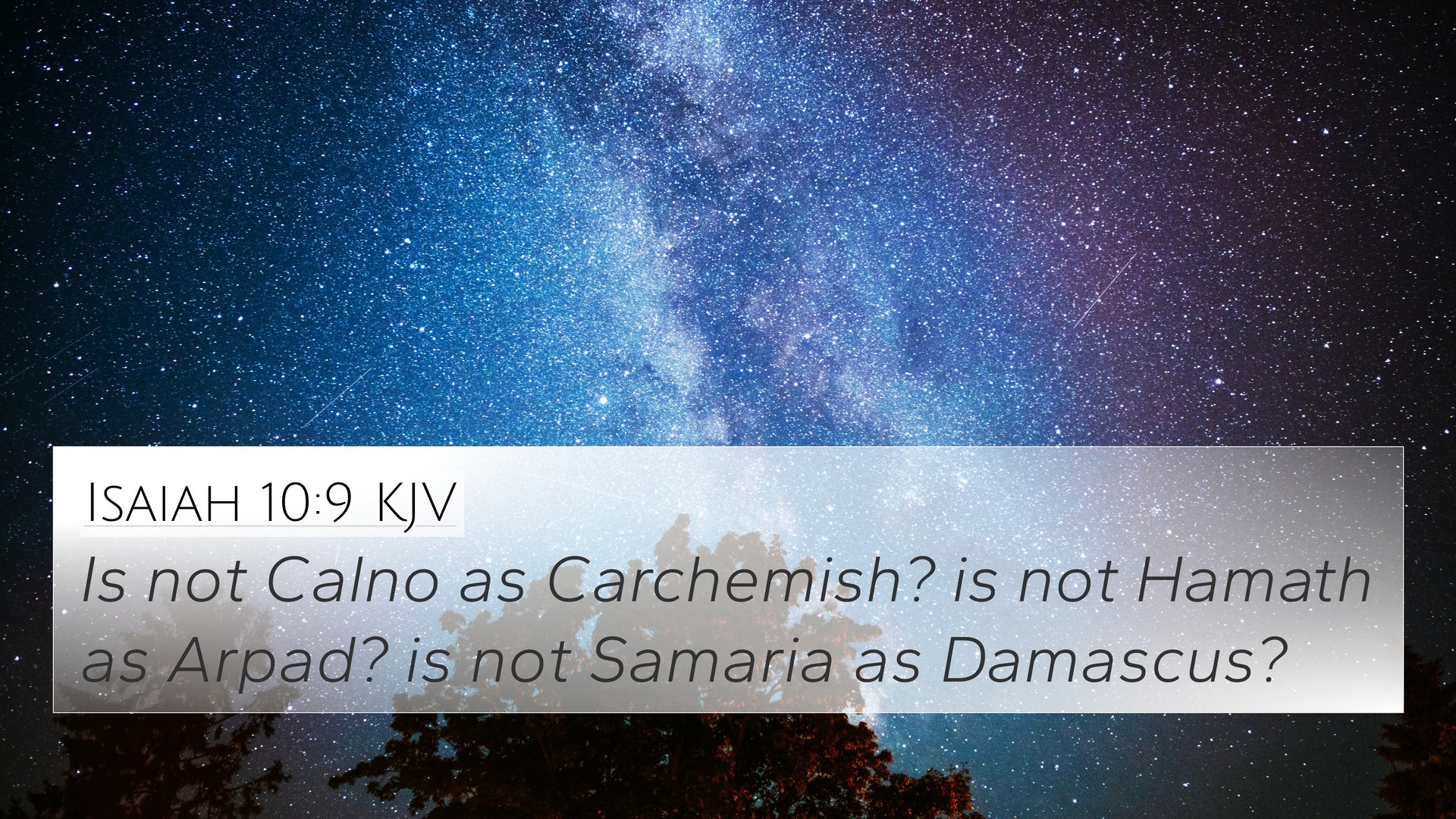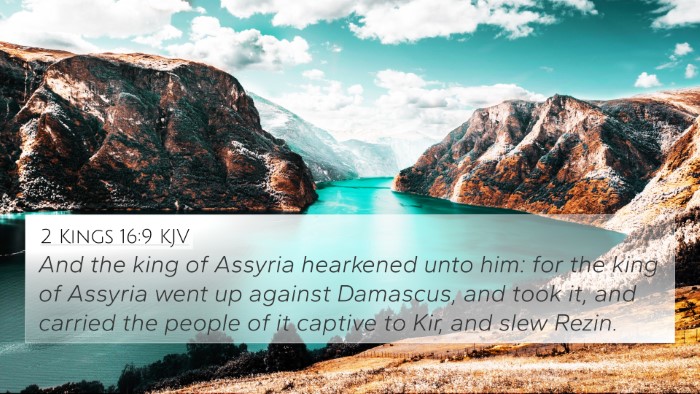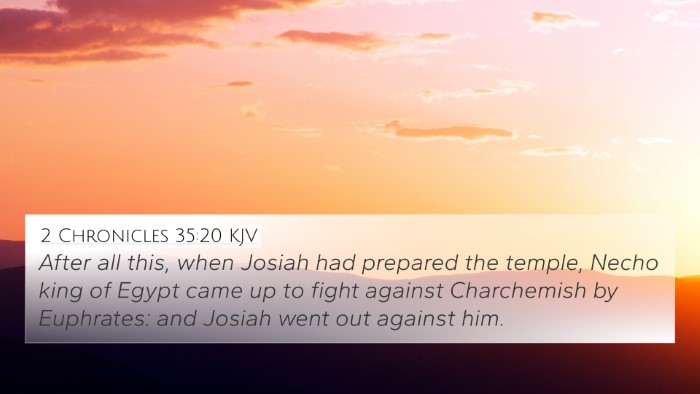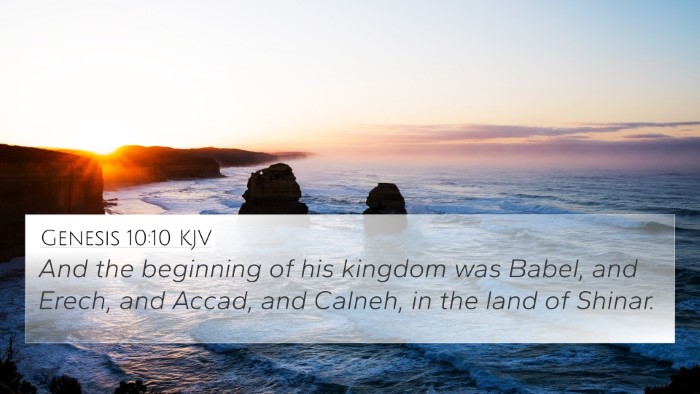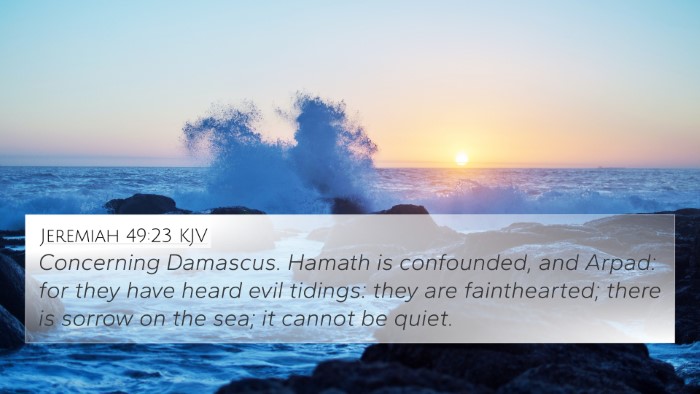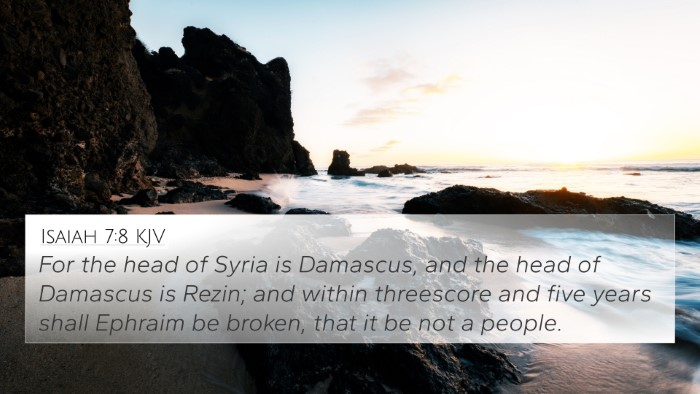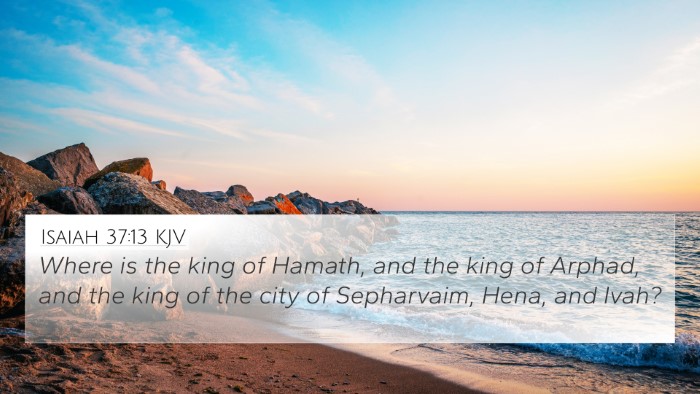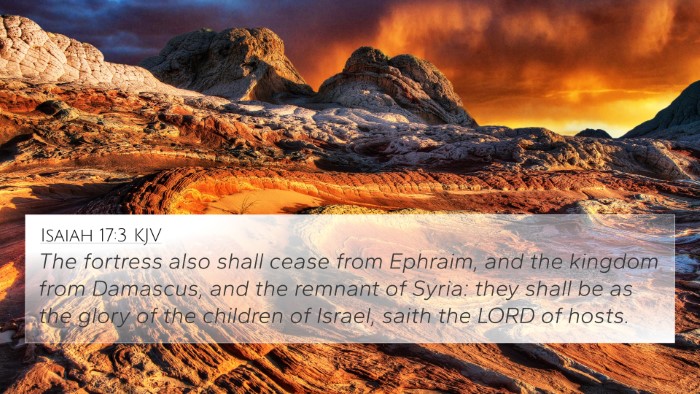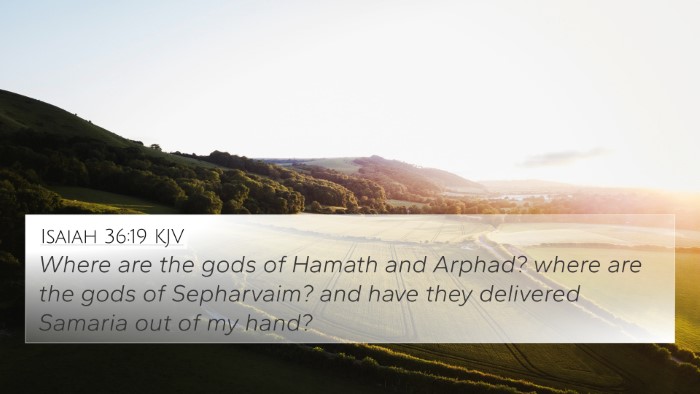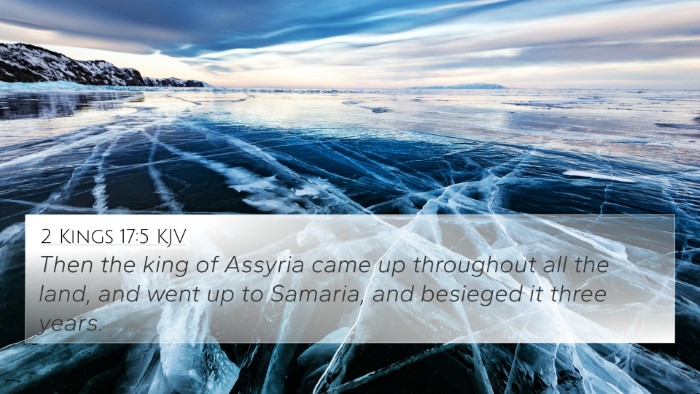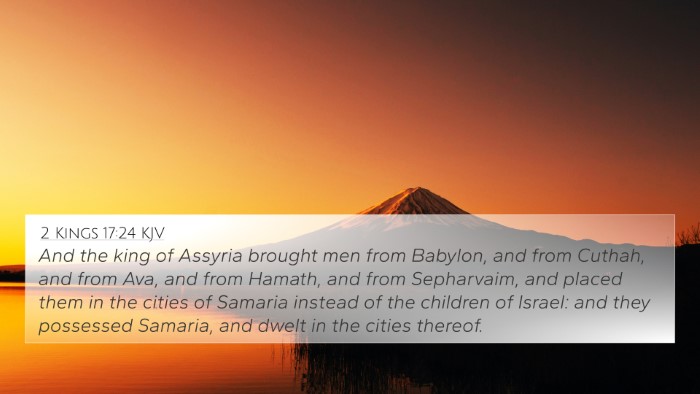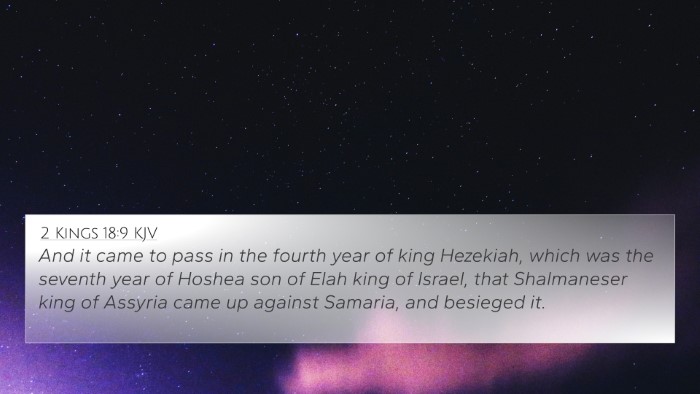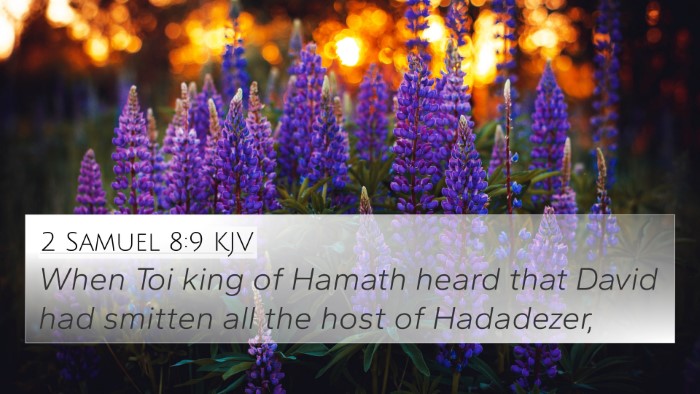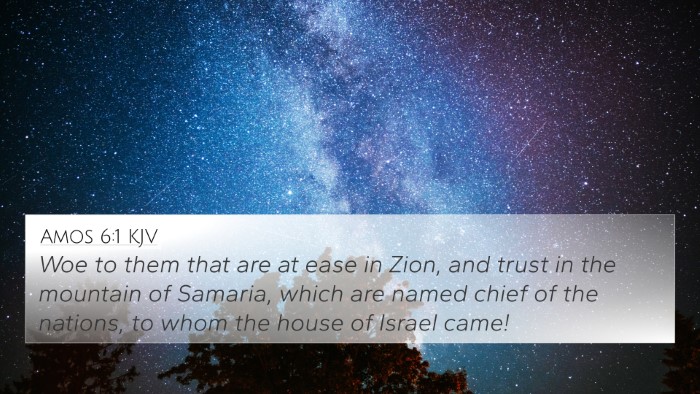Understanding Isaiah 10:9
Isaiah 10:9 states: "Is not Calno like Carchemish? Is not Hamath like Arpad? Is not Samaria like Damascus?" This verse is part of the prophecies concerning the Assyrian invasion and highlights the pride and overconfidence of the Assyrian king, who boasts about conquering various nations.
Context of Isaiah 10:9
This passage fits within the broader narrative of Isaiah, where the prophet speaks against the arrogance of powerful nations and emphasizes God's sovereignty over human affairs.
Meanings from Commentaries
Matthew Henry's Commentary: Henry interprets this verse as a rhetorical question posed by the Assyrian king, drawing parallels between cities that have fallen to his power. He signifies that the pride of the Assyrian king is misplaced, as he equates the fallen capitals of other nations to the fate of Israel. The underlying message is a warning against hubris, as God's hand is ultimately decisive in the rise and fall of nations.
Albert Barnes' Notes: Barnes highlights the importance of understanding the Assyrian perspective during the time. The king's comparison of Calno, Carchemish, Hamath, Arpad, Samaria, and Damascus places a spotlight on his military victories, yet it serves as a reminder that ultimate power resides with God, who can overturn human ambitions at will.
Adam Clarke's Commentary: Clarke emphasizes that this verse serves to illustrate the Assyrian king's confidence in his military prowess and victories. Clarke notes that each city mentioned represents a significant conquest, but foresight shows that God will intervene and end all earthly pride and rebellion against His authority.
Thematic Connections
This verse illustrates the theme of human pride against divine authority and can be linked to several other passages throughout the Bible that discuss similar themes of power, judgment, and divine sovereignty.
- Proverbs 16:18: "Pride goes before destruction, and a haughty spirit before a fall." This proverb echoes the warning against arrogance that is implied in Isaiah 10:9.
- Daniel 4:30-32: King Nebuchadnezzar’s pride leads to his downfall, paralleling the consequences faced by the Assyrian king.
- Jeremiah 48:29: Similar themes of pride in the context of nations are explored where the boasting of Moab is condemned.
- Isaiah 14:13-14: This passage discusses the fall of the proud king of Babylon, akin to the fate of the Assyrian king.
- Luke 1:51: "He has shown strength with his arm; he has scattered the proud in the thoughts of their hearts." This New Testament verse reflects the theme of God's power over human pride.
- James 4:6: "God opposes the proud but gives grace to the humble," reinforcing the message of Isaiah about the dangers of pride.
- 1 Peter 5:5: Similar exhortations regarding humility in the face of God's sovereign will are reflected in this verse.
Cross-Referencing Biblical Texts
This verse not only stands alone but forms part of a greater discussion on the fate of nations and the consequences of pride. Engaging in cross-referencing Biblical texts, readers can explore deeper insights into the themes presented in Isaiah 10:9.
Tools for Bible Cross-Referencing
For a comprehensive understanding, utilizing tools like Bible concordances or cross-reference guides can enhance Bible study. Understanding the connections between verses allows for a more enriching experience when reflecting on the Scriptures. Various Bible reference resources are available to help delve into these themes.
Conclusion and Application
Isaiah 10:9 invites readers to consider the transient nature of human pride and the ultimate authority of God over nations. Recognizing connections between Bible verses can encourage humility and reliance on God amidst worldly trials. Reflecting on the parallels found in this verse empowers believers in their faith and guidance through the Scriptures.
